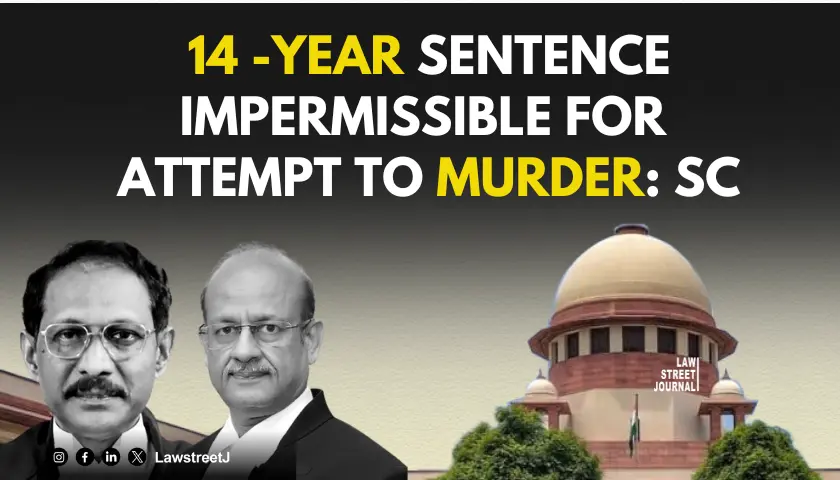NEW DELHI: The Supreme Court on Monday held that imposition of rigorous imprisonment for a term beyond 10 years for a conviction under Section 307, IPC, is impermissible in law.
A bench of Justices C T Ravikumar and Rajesh Bindal partly allowed an appeal in an attempt to murder case wherein two accused were sentenced to 14 years imprisonment.
The court pointed out sentence of 10 years, life imprisonment or death penalty can be imposed in attempt to murder cases.
Dealing with the penal provision, the court said the victim need not suffer any kind of bodily injury for the offence of attempt to murder.
"The offence to commit murder punishable under Section 307, IPC is constituted by the concurrence of 'mens rea' followed by 'actus reus', to commit an attempt to murder though its accomplishment or sufferance of any kind of bodily injury to the victim is not a ‘sine qua non’," the bench said.
The court said if a man commits an act with such intention or knowledge and under such circumstances that if death had been caused, the offence would have amounted to murder or the act itself is of such a nature as would have caused death in the usual course of an event, but something beyond his control prevented that result, his act would constitute the offence punishable as an attempt to murder under Section 307, IPC.
Appellants Amit Rana and another person challenged the concurrents orders of the trial court and the Punjab and Haryana High Court which held them guilty of attempt to murder and sentenced them to 14 years rigorous imprisonment with fine.
The apex court here altered the sentence from 14 to 10 years imprisonment, while upholding their conviction for causing gun shot injuries on the complainant-victim which resulted into spinal injuries, making him paralysed.
In its judgment, the court considered the question of seminal importance whether a convict under Section 307, IPC, can be sentenced to undergo imprisonment, of either description, beyond the period of 10 years.
"When in unambiguous terms the legislature prescribed the maximum corporeal sentence imposable for the conviction under Section 307, IPC, under the first part and when the court concerned upon convicting the accused concerned thought it fit not to impose imprisonment for life, the punishment to be handed down to the convict in any circumstance cannot exceed the punishment prescribed under the first part of Section 307, IPC," the court said.
The court said in case the victim suffered hurt in terms of the second part of Section 307, IPC, the convict can be sentenced to undergo imprisonment for life.
"In the event the court did not consider that imprisonment for life is not to be imposed the other option, going by the provision, is only to impose such punishment as is mentioned in the first part of Section 307, IPC," the bench said.
The court also noted the last part of Section 307 prescribed death sentence as the only punishment when the offender during the commission of the crime is under the sentence of imprisonment for life and hurt is caused to the victim.

















